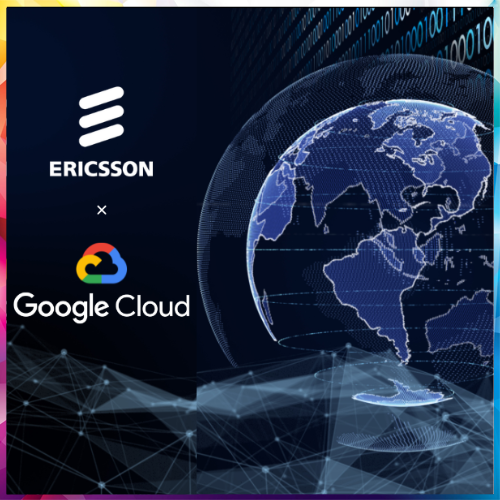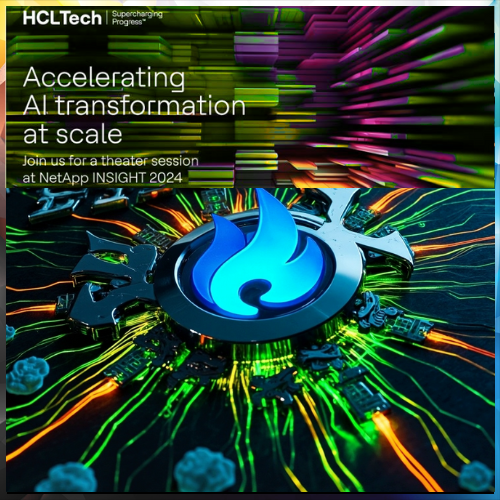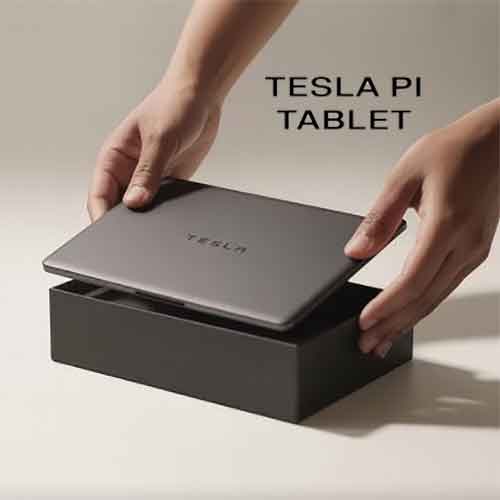
India's rapidly expanding AI landscape is paving the way for unprecedented opportunities in economic growth and innovation. As the nation sets its sights on a trillion-dollar digital economy, the demand for AI laptops and desktops is escalating, driven by the necessity for powerful computing solutions across various sectors. From healthcare to agriculture and finance, businesses and individuals are increasingly relying on AI to enhance productivity and streamline operations.
AI leading the way
Vineet Gehani, Senior Director of Personal Systems at HP India, highlights the transformative potential of AI in personal computing, as he notes that in today’s hybrid lifestyle, consumers need a PC that enables them to work, play, and create seamlessly. “At HP, we focus on evolving with our customers’ needs, consistently innovating our portfolio to address these dynamic requirements. We see AI as a transformative technology, especially within personal computing, and are excited about the potential it brings. By harnessing AI, PCs can deliver highly personalized experiences, empowering productivity, and creativity like never before. Everyday tasks become quicker, and research or data analysis is simplified, giving users more time to focus on what matters,” he says.
 Gehani asserts that AI PCs are primed to support India’s creators, gamers, startups, IT professionals, and the gig economy. He underscores that with AI-enhanced audio and video features, these devices will transform content creation and audience engagement for creators and streamers. “For Indian consumers, this opens vast opportunities across diverse segments. Today, our PC portfolio spans Creators, Gaming, Premium, and Enterprise categories, helping us maintain our leadership in India’s PC market with a market share of over 30%. Our ‘Future Ready’ strategy is resonating, ensuring HP remains at the forefront of India’s PC landscape,” he adds.
Gehani asserts that AI PCs are primed to support India’s creators, gamers, startups, IT professionals, and the gig economy. He underscores that with AI-enhanced audio and video features, these devices will transform content creation and audience engagement for creators and streamers. “For Indian consumers, this opens vast opportunities across diverse segments. Today, our PC portfolio spans Creators, Gaming, Premium, and Enterprise categories, helping us maintain our leadership in India’s PC market with a market share of over 30%. Our ‘Future Ready’ strategy is resonating, ensuring HP remains at the forefront of India’s PC landscape,” he adds.
 Atul Mehta, Senior Director and General Manager of the India Consumer Channel at Dell Technologies, also believes the PC market is undergoing a significant transformation, largely due to the integration of artificial intelligence (AI). He notes that the launch of AI-enabled PCs earlier this year represents a crucial advancement in both technology and user experience. “These devices bring forth an impressive array of capabilities that enhance everyday computing, enabling users to streamline mundane tasks and focus on more important tasks. The latest lineup of AI PCs boasts extraordinary performance, enhanced battery life, and elevated productivity levels, allowing a diverse range of users to benefit from cutting-edge innovation,” he says.
Atul Mehta, Senior Director and General Manager of the India Consumer Channel at Dell Technologies, also believes the PC market is undergoing a significant transformation, largely due to the integration of artificial intelligence (AI). He notes that the launch of AI-enabled PCs earlier this year represents a crucial advancement in both technology and user experience. “These devices bring forth an impressive array of capabilities that enhance everyday computing, enabling users to streamline mundane tasks and focus on more important tasks. The latest lineup of AI PCs boasts extraordinary performance, enhanced battery life, and elevated productivity levels, allowing a diverse range of users to benefit from cutting-edge innovation,” he says.
Mehta explains that with Copilot+, these PCs provide exceptional speeds for handling demanding workloads, while also enhancing security and efficiency. The on-device AI features create a user-friendly experience, allowing users to achieve accurate results without needing internet access. “As these operations are not on the cloud, there is an added layer of security, which means that users can maximise their productivity without worrying. At Dell, we are committed to empowering our users with devices that push the boundaries of innovation and offer a differentiated PC experience backed by the latest technology,” he notes.
The demand drivers
 Sanjeev Mehtani, Senior Sales Director at Acer India, states that demand for AI-driven hardware, PCs, and servers is rising in India, driven by recognition of AI's potential to boost productivity and efficiency. This trend is noticeable among consumers and enterprises, though their demands differ. “On the consumer side, AI integration into daily life has spurred demand for devices that ensure seamless interactions and personalized experiences. AI is transforming how individuals access information and create content, delivering curated outputs that save time and streamline tasks. In enterprises, the need for AI-ready hardware is growing as organizations modernize their infrastructure for automation, data modelling, and real-time decision-making,” he explains.
Sanjeev Mehtani, Senior Sales Director at Acer India, states that demand for AI-driven hardware, PCs, and servers is rising in India, driven by recognition of AI's potential to boost productivity and efficiency. This trend is noticeable among consumers and enterprises, though their demands differ. “On the consumer side, AI integration into daily life has spurred demand for devices that ensure seamless interactions and personalized experiences. AI is transforming how individuals access information and create content, delivering curated outputs that save time and streamline tasks. In enterprises, the need for AI-ready hardware is growing as organizations modernize their infrastructure for automation, data modelling, and real-time decision-making,” he explains.
Atul Mehta of Dell Technologies, emphasizes that AI-enabled PCs are transforming the future of computing, significantly enhancing device intelligence and functionality, and enriching the overall user experience. “A key innovation in AI PCs is the introduction of Neural Processing Units (NPUs). Our lineup showcases a significant advancement for professionals, creators, and students. NPUs reduce reliance on the CPU and GPU by automating routine tasks, allowing them to focus on more intensive processes. This synergy enhances digital content creation, video editing on platforms like Adobe, and features like Microsoft Studio Effects for video calls, enabling seamless real-time multitasking,” he asserts.
 Arnold Su, Vice President, Consumer and Gaming PC, System Business Group, ASUS India, notes that the Indian market is shifting from content consumption to creation, driving demand for more powerful AI-driven hardware for dynamic, on-the-go work. “We see a mix of demand in the market for both personal and business use. The rise of creators and professionals needing powerful processors and high portability is driving the adoption of AI applications in devices. Moreover, only 11% of Indian homes own a PC, equating to one PC per family. This leaves 89% of the population without access to a PC, presenting an untapped market for ASUS to demonstrate the value of our devices as worthwhile family investments,” he elucidates.
Arnold Su, Vice President, Consumer and Gaming PC, System Business Group, ASUS India, notes that the Indian market is shifting from content consumption to creation, driving demand for more powerful AI-driven hardware for dynamic, on-the-go work. “We see a mix of demand in the market for both personal and business use. The rise of creators and professionals needing powerful processors and high portability is driving the adoption of AI applications in devices. Moreover, only 11% of Indian homes own a PC, equating to one PC per family. This leaves 89% of the population without access to a PC, presenting an untapped market for ASUS to demonstrate the value of our devices as worthwhile family investments,” he elucidates.
Strategies that matter a lot
Acer’s strategy in the AI-driven hardware and server market focuses on advanced, customizable solutions for enterprises, research institutions, and data-heavy industries, addressing the critical demand for high-performance computing amid growing AI applications. “Our offerings include high-performance PCs and servers featuring the latest Intel, AMD, and NVIDIA hardware, delivering the teraflop and TOPS capabilities needed for intensive AI workloads. This enables us to serve various sectors, from research to industries like weather modelling and disaster management. Additionally, we bundle software solutions with our hardware, creating an integrated platform that enhances user experience and allows efficient, scalable AI deployments. Our focus on flexibility and tailored solutions positions us to capture more market share in India’s expanding AI-driven hardware sector,” highlights Sanjeev Mehtani of Acer India.
ASUS, on the other hand, is aggressively expanding its retail presence, launching exclusive stores, and reducing product launch time gaps to capture market share. Arnold Su of ASUS India, says, “We have surpassed our goal of 300 ASUS exclusive stores, with over 4,000 sales points
across 423 districts in India. This, combined with our online partners, provides the potential buyer to not only see the product online but also experience the device in person, enhancing satisfaction and increasing the chances of purchase.”
“In addition to a robust retail strategy, we are focused on minimizing the gap between Indian and international product launches. The Indian market shows a growing appetite for innovative technology solutions. Our goal is to achieve 25-30% market share in two years, building on our success from 6.3% in 2017 to 17.8% in 2023. A multi-pronged strategy that is pillared on easing product experience and constantly bringing forth,” Su asserts.
Similarly, Dell Technologies utilizes an omnichannel retail strategy to provide consistent access to their products across various platforms. “Our network includes 632 Dell Exclusive Stores, three major Large Format Retail outlets, and over 5,000 Multi-Brand Outlets across 400 cities in India. Each store features our complete product range and is staffed by trained Inside Sales Promoters (ISPs) who help customers select devices that meet their needs, providing an exceptional in-store experience,” elucidates Dell’s Atul Mehta.
“In addition to our retail presence, we have built a strong online footprint through our website and partnerships with e-commerce platforms, enabling customers to explore our product portfolios and purchase on their preferred platforms. We also implement a robust feedback loop, gathering insights from both online and offline channels. Our website collects customer data, reviews, and ratings, while we actively seek feedback from stores nationwide. This helps us understand pricing, promotions, and service quality. By combining these elements, we aim to enhance the shopping experience and position ourselves as a market leader, ensuring every customer journey is exceptional and memorable,” reveals Mehta.
Seamless integration with AI software frameworks
Acer India’s Sanjeev Mehtani emphasizes that hardware manufacturers need to focus on compatibility and customization to enable seamless integration with AI software frameworks and tools. He says, “Many organizations, including enterprises, research institutions, and educational bodies depend on their existing software and infrastructure. Ensuring hardware compatibility is crucial for the seamless integration of AI-driven tools, enabling quicker deployment and smoother transitions to advanced digital operations without significant disruptions.”
“Additionally, providing customizable hardware solutions that cater to the specific client needs not only boosts performance but also accelerates AI technology implementation. Advanced production methods enhance flexibility, allowing manufacturers to swiftly meet demands with configurations that integrate seamlessly, ensuring compatibility for effective AI-driven operations,” adds Mehtani.
Arnold Su of ASUS India asserts that ensuring seamless integration requires companies to understand the requirements of the customer, why they want a device and how can the system be made more efficient and easier for them to use. “We have invested in AI tools like StoryCube and MuseTree, designing AI-optimized systems to utilise the new processors and hardware, and customizing products for Indian customers,” he highlights.
Dell’s Atul Mehta notes that their devices are equipped with unique AI functionalities that transform user interaction. “For instance, The XPS 13, featuring AI-enhanced processing, delivers up to 27 hours of battery life while streaming content, enabling uninterrupted work and creativity. Its NPU handles an impressive 45 trillion operations per second (TOPS), making AI task management seamless. Similarly, the Inspiron 14 Plus boasts advanced audio-visual capabilities, including AI-enabled noise reduction for clear video calls. It also features auto-framing to keep users centred and an eye contact function that enhances engagement throughout conversations,” he explains.
Specialized AI chipsets fuelling the trend
Acer’s Sanjeev Mehtani believes that recognizing the growing concerns about cloud-based AI processing, particularly regarding the emergence of specialized AI chipsets, is transforming productivity and leisure experiences on PCs. “These specialized chipsets are designed to perform AI tasks locally, addressing rising concerns about cloud-based processing, particularly related to security and privacy. By incorporating these chips, manufacturers can shift computational workloads from the cloud to the device, improving processing speed while ensuring sensitive data remains protected from potential cyber threats,” he states.
“With the ability to perform complex tasks without relying on constant internet connectivity, users benefit from smoother, more immersive experiences. Specialized AI chipsets enable rapid data processing, allowing for instant tasks like rendering graphics and crafting detailed game environments, significantly enhancing gameplay and user engagement. Additionally, localized AI can quickly analyze images, making real-time adjustments to optimize colours, lighting, and filters based on user preferences. This combination of powerful performance and a focus on user privacy creates a highly personalized and engaging digital experience,” adds Mehtani.
Arnold Su of ASUS India highlights that the emergence of AI chipsets, including those from Qualcomm, AMD, and Intel’s latest Lunar Lake processors, has significantly enhanced computational power and efficiency in PCs. The integration of AI in CPUs and the growing use of NPUs have improved battery efficiency and reduced power consumption, enabling users to enjoy longer device usage without frequent recharging.
“For example, creating images used to take considerable time, but with AI in laptops, it’s now instant. You can simply describe a scene—like a house with gardens—and the AI generates it for you. You can also request professional artist touches, and the AI will modify the image accordingly. By asking it to add or remove elements, you can fine-tune the output, making your interaction with the PC more intuitive and conversational over time,” Su notes.
Atul Mehta of Dell Technologies, adds, “As we continue to innovate, we anticipate a surge in AI use cases that will further refine how users interact with their PCs. At Dell, we envision a future where the integration of AI leads to more intuitive, responsive devices that adapt to individual user needs in real time, ultimately fostering a more productive and enriching computing experience.”
Partner program plays a vital role
 Meanwhile, partner programs serve a crucial role in promoting business growth by nurturing a collaborative ecosystem that serves the interests of both the company and its partners. Focused on a bold vision to deliver smarter technology for all, Lenovo has built its success as the world’s largest PC company by expanding into growth areas that drive the advancement of 'New IT' technologies, including client, edge, cloud, network, and intelligence. “This encompasses servers, storage, mobile, software, solutions, and services. As we evolve, our partners also seek support in navigating our business structure and running their operations more efficiently,” notes Arvind Chabra, Director, One Channel, Lenovo.
Meanwhile, partner programs serve a crucial role in promoting business growth by nurturing a collaborative ecosystem that serves the interests of both the company and its partners. Focused on a bold vision to deliver smarter technology for all, Lenovo has built its success as the world’s largest PC company by expanding into growth areas that drive the advancement of 'New IT' technologies, including client, edge, cloud, network, and intelligence. “This encompasses servers, storage, mobile, software, solutions, and services. As we evolve, our partners also seek support in navigating our business structure and running their operations more efficiently,” notes Arvind Chabra, Director, One Channel, Lenovo.
He further says, “Our incentive and reward structure is tiered to recognize and reward high performance. Partners gain access to exclusive resources, including advanced training and certifications, marketing funds, and performance-based rebates. This structure not only empowers partners to stand out in the market but also aligns with Lenovo’s core values of sustainability, customer-centricity, and innovation.”
“Partner program enables partners to showcase their achievements, elevate their partner status, and unlock incentives to grow their business, including performance rebates, preferential pricing, and additional marketing development funds. By enhancing partners' capabilities, Lenovo 360 helps them become trusted advisors, proposing quick, cost-efficient, and effective solutions,” asserts Chabra.
Government policies can accelerate the growth
Sanjeev Mehtani of Acer India, asserts that a comprehensive strategy involving government policies and initiatives is crucial for the growth of India’s AI-driven hardware and PC market. “Key actions include providing tax benefits and subsidies for companies investing in AI research and development, promoting public-private partnerships to foster collaboration, and establishing a clear regulatory framework to build trust. Additionally, collaborating with educational institutions to create AI-focused curricula will help equip students with relevant skills,” he emphasizes.
“Dedicated AI research funds should support startups and established companies, while competitions can encourage innovative solutions. By facilitating access to venture capital and incubation programs, India can drive AI hardware and software innovation. Internationally, engaging in partnerships and discussions on AI regulations will safeguard interests. Building a comprehensive AI ecosystem with advanced computing infrastructure is essential for high-performance research. By focusing on R&D, education, and strategic partnerships, India can enhance its AI-driven market and lead in innovation,” advises Mehtani.
Echoing similar sentiments, ASUS’s Arnold Su states, “India is a vibrant, youthful market, with 89% of households still lacking a personal computer. Coupled with the government’s commitment to a Digital India initiative, skill development programs, and increasing recognition of AI advancements, the country presents significant growth potential.”
Security and performance must be a key
According to Acer’s Sanjeev Mehtani, the hardware manufacturers must prioritize security alongside compatibility and performance. This includes implementing end-to-end data protection through encryption, secure enclaves, and trusted execution environments (TEEs) to safeguard data during processing, storage, and transmission.
“AI-specific security protocols are essential for protecting sensitive models and datasets, particularly in distributed and edge environments. Regular security audits and proactive collaboration with software vendors are crucial to identifying and addressing vulnerabilities, ensuring that the hardware remains resilient against evolving threats. By focusing on robust security measures, manufacturers can build trust and maintain the integrity of AI systems across various applications,” emphasizes Mehtani.
Arnold Su from ASUS remarks that the emergence of AI has triggered discussions on the importance of regulations to protect users and ensure the security of their systems. “Industry players must prioritize data privacy, security, and adhere to ethics of using AI. We're committed to responsible AI development practices and adherence to data protection laws. Investing in AI tools and designing AI-optimized hardware will drive innovation, and with AI integration in PCs and utilising NPU for on-device AI computing needs is one way for us to maintain a secure and protected environment for the user,” he adds.
Leveraging the festive season
Amidst the festive season, which is seen as an ideal time for purchases, brands leave no stone unturned in capitalizing on the occasion. Atul Mehta from Dell says it encourages them to launch exclusive promotions and connect with consumers through thoughtfully-designed campaigns. “This year, we celebrate the festive spirit by integrating AI into our offerings, enhancing everyday experiences. Our 2024 campaign emphasizes family bonds and nostalgic traditions, fostering emotional connections. This approach encourages consumers to explore our products and discover the transformative potential of AI technology,” he notes.
“In addition to highlighting innovative technology, we provide exclusive festive deals like cashback, extended warranties, and bonus merchandise for a rewarding customer experience. Our multilingual campaigns celebrate India’s cultural diversity, reaching audiences nationwide. We've partnered with influencers and organized events in 35 cities, allowing consumers to experience our products firsthand. By demonstrating how these laptops simplify life and enhance creativity, our campaign aims to make the festive season special for users and their loved ones,” adds Mehta.
Sanjeev Mehtani from Acer India too emphasizes that seasonal promotions, discounts, and collaborations with influencers and local retailers enhance visibility and connect with price-sensitive buyers through culturally relevant messaging and regional language content. “Price significantly influences Indian consumer behaviour. While discounts attract shoppers, many are willing to invest in products that provide perceived value, like premium quality and brand trust. A tiered pricing strategy—featuring budget, mid-range, and premium products—caters to diverse segments. Emphasizing a strong online presence alongside in-store events engages consumers effectively. Personalized recommendations, festive packaging, and limited-edition items create exclusivity, prompting quicker purchases. Encouraging the exchange of non-AI laptops for AI models further enhances this approach, ultimately boosting sales and brand loyalty during the festive season,” reveals Mehtani.
ASUS India’s Arnold Su too is of the opinion that the festive season greatly enhances electronics sales, accounting for nearly 40% of their annual revenue, which makes it a vital period for brands. “To seize this opportunity, our strategy focuses on making our products accessible while providing top-tier technology at competitive prices. We plan to enhance our marketing efforts with promotions and exclusive offers, and prioritize customer engagement through targeted campaigns and festive content on social media, creating
an immersive shopping experience that captures the season’s celebratory spirit,” he notes.
See What’s Next in Tech With the Fast Forward Newsletter
Tweets From @varindiamag
Nothing to see here - yet
When they Tweet, their Tweets will show up here.




























